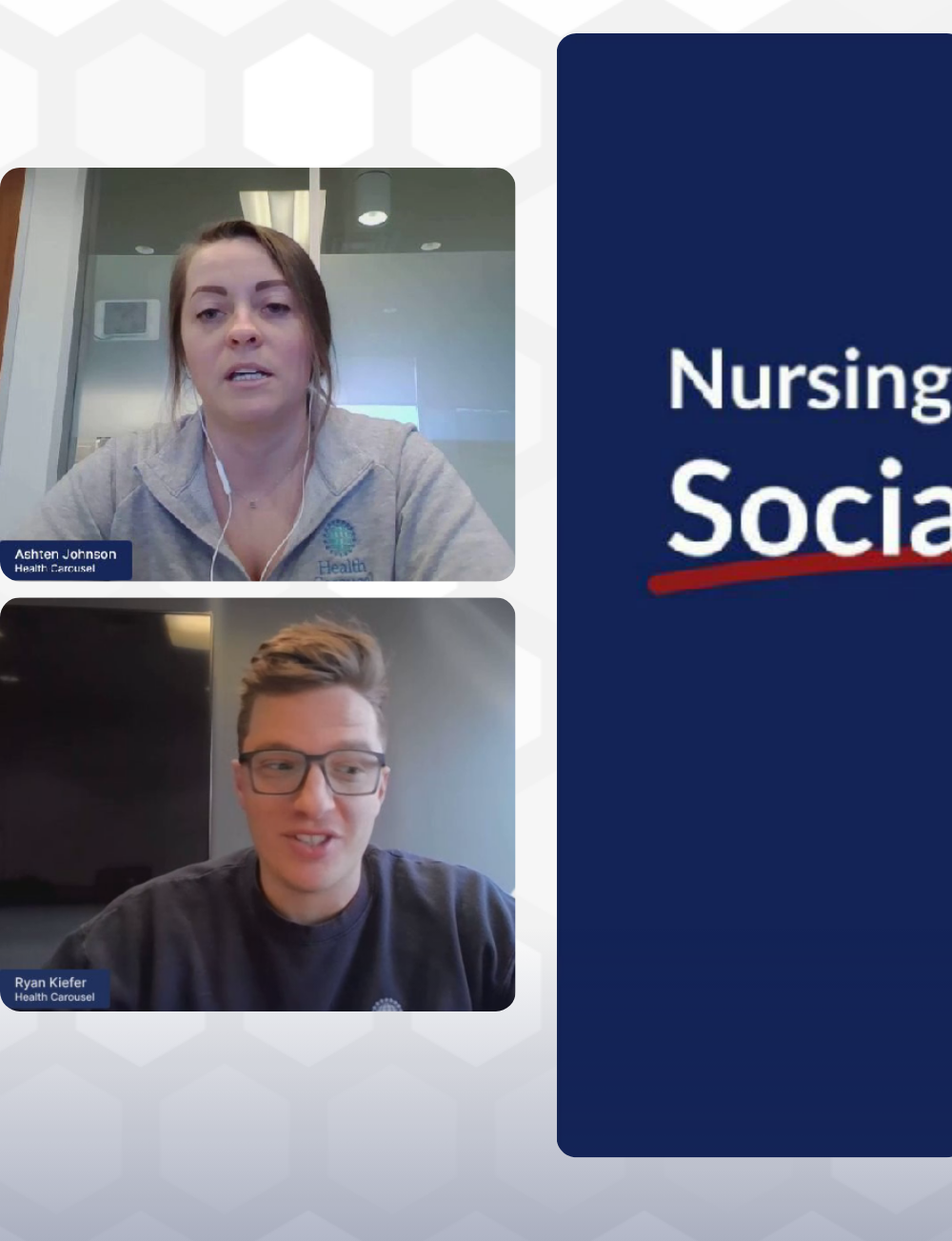Understanding the U.S. Nursing Job Market: What International Nurses Should Know

The Resource Center content, including all videos and other media, is for informational purposes only. You should not construe any such information or other material as legal, tax, investment, financial or other advice. The advice and information contained in the Resource Center is not a substitute for advice from a professional who is aware of the facts and circumstances of your individual situation
The U.S. healthcare system offers tremendous opportunities for internationally educated nurses. But to transition smoothly and confidently, it’s essential to understand how the U.S. job market, hospital hiring practices, and nurse placement processes work.
To help you understand these changes and what they mean for your career, this article covers the key trends shaping hospital hiring and nurse placement in the United States. If you want to explore these topics in more detail, you can also watch a short webinar where Earl Dalton, Chief Clinical Officer and Vice President of Clinical Services at Health Carousel, shares additional insight based on years of experience working with nurses across the country.
The Changing Landscape of Nursing in the U.S.
Across the country, hospitals are navigating rising patient complexity alongside a decreasing pool of highly experienced nurses. Today’s patients are often older, live with multiple chronic conditions, and require more intensive care. At the same time, many of the nation’s most seasoned nurses are reaching retirement age, leaving a younger and less tenured workforce to manage increasingly complex healthcare needs.
By 2030, the U.S. is expected to lose more than two million years’ worth of nursing experience to retirement. This widening experience gap directly impacts hospitals, and it reinforces the vital role international nurses play in strengthening the U.S. workforce.
For international nurses seeking employment, this environment translates into a consistent, nationwide demand for skilled clinicians across nearly every specialty.
How Hospital Hiring Works in the U.S.
The U.S. hiring process may look different from what many international nurses are used to. Understanding each stage can make your job search more efficient and successful.
1. Job Posting and Application
Hospitals identify their staffing needs and post open positions online. In the United States, the first stage of reviewing candidates depends heavily on the resume. A clear and accurate resume is how hospitals decide who should move forward to interviews.
When you work with Health Carousel, you do not go through this step alone. Our team helps you prepare a resume that presents your experience in the way U.S. hospitals expect so you can make a strong first impression.
2. Resume Review and Selection
Recruiters and nurse leaders carefully review resumes to find candidates whose skills, experience, and competencies align with the role. Because this screening happens before your interview, presenting your experience clearly and professionally is essential.
3. Interviews and Clinical Validation
Qualified candidates move on to interviews, typically conducted by a panel of nurse leaders and team members. You may also complete skills assessments or clinical validations to confirm that your training aligns with U.S. hospital expectations.
4. The Importance of Soft Skills
U.S. hospitals value more than clinical expertise. They look for nurses who demonstrate:
- Clear and professional communication
- Strong teamwork and collaboration
- Adaptability and problem-solving ability
- A supportive, dependable approach to patient care
Being a strong colleague is just as important as being a strong clinician.
For support in preparing for this stage, refer to our interview tips resource to help you navigate U.S. nursing interviews with confidence.
Building a Strong U.S.-Ready Resume
Hospitals and recruiters look for resumes that clearly highlight:
- Clinical Skills: The units you’ve worked in and the procedures you’ve performed
- Problem-Solving Ability: Real examples of managing complex or emergent situations
- Communication Strengths: How you work with physicians, peers, and patients
- Cultural and Organizational Fit: Evidence of teamwork, patient-centered care, and professionalism
Health Carousel’s clinical team provides one-on-one support to help refine your resume and prepare you for interviews, ensuring you present your experience in a way that aligns with U.S. standards.
Understanding Placement and Job Preferences
Once you’ve passed the NCLEX and secured your visa, the placement process begins. Health Carousel partners with hospitals across the U.S. to match your skills, experience, and preferences with available roles.
However, flexibility plays a major role in how quickly you are placed. For example, if you require a warm-weather coastal location, only a small number of hospitals may meet those criteria. Broadening your preferences increases your placement options and often results in a faster match.
To help you make informed decisions during this stage, access our assignment preference resource for a deeper look at how preferences influence available roles.
Why Placements Sometimes Change
Even after a placement has been secured, changes can occur due to factors outside of your control. Common reasons include:
- Hospital workload shifts: Units may close or reorganize based on patient volume.
- Financial adjustments: Hospitals may reprioritize budgets unexpectedly.
- Immigration or timing delays: Government processing timelines may impact start dates.
- Candidate preference updates: Nurses occasionally adjust their location or unit preferences.
When this happens, Health Carousel quickly identifies new opportunities within its national hospital network to keep your journey on track without unnecessary delays.
The U.S. nursing workforce is evolving rapidly, creating both challenges and meaningful opportunities. For internationally educated nurses, it’s an exciting time to advance your skills, experience new environments, and make a lasting impact on patient care.
By understanding how the job market works, preparing a strong resume, and staying flexible during placement, you can position yourself for long-term success as a nurse in the United States.
Related Resources
Keep Exploring More Resources
Looking for more guidance? Browse our full collection of resources to support you throughout your journey.
.webp)






.webp)